This year to mark International Women’s Day, I invited a group of women to reflect on what International Women’s Day means to them personally. I am proud to present the Reflections of these women. I have also included mine at the end.
Happy International Women’s Day to everyone!
Professor Shirley Randell
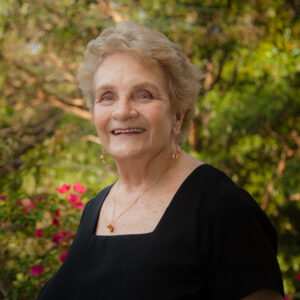
International Women’s Day
I am not sure if my mother was aware that the date on which she had given birth to me in Western Australia was 8 March 1940. My grandmother who was a strong feminist working with women’s organisations on the health and welfare of women and children and supporting Edith Cowan might have been aware. She had home help to take care of home duties, but my mother was weighed down with managing a household of four children without the labour-saving devices we have in our homes today. She was nevertheless my great role model who supported me to become the first family member to attend a university and then when I gave up medical studies to marry at 18, and later took her four beloved grandchildren aged 1-4 years away to Papua New Guinea. Throughout my life until she died at the age of 95 my mother surrounded me with love and celebrated every achievement as well as every misstep.
Having IWD as my birthday means a week of celebrations – this week’s IWD events with fantastic women speakers by Rotary, Zonta, UN Women Australia, Graduate Women, Lyceum Club, Union, University and Schools Club to name a few. Before Covid, I celebrated my birthday over more than a decade in New York when attending and presenting papers at the United Nations Commission on the Status of Women meetings. Every year the outcome of the Commission’s consideration of a priority theme has taken the form of agreed conclusions, to be negotiated by all Member States. While there has been considerable progress on key issues for women over those years, the intense antipathy from a minority of countries to key issues, including the Holy See, which unaccountably is included in the meetings, continues to hold back progress.
I very much prefer this year’s United Nations IWD theme of ‘Gender equality today for a sustainable tomorrow’ to the IWD campaign theme: ‘Breaking the Bias’. UN Women Australia’s theme of ‘Changing climates’ is a reminder of the dangerous changes that are happening to our world and an acknowledgement of the critical role women will play in everyone’s future.
Jane Caro
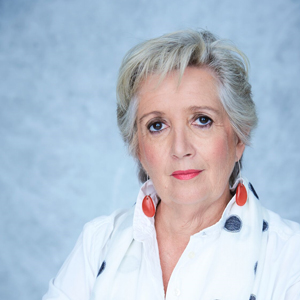
I love IWD and look forward to it every year – and not only because I get a lot of paid work around that time either. I love it because of the chance it gives us all to think about how far women have come and celebrate our extraordinary achievements, throughout history, of course, but especially over the last 50 years. If I think back to what women expected of their lives and how they thought about themselves when I was a girl and how they do today – the change has been revolutionary. But (you knew there was going to be one, didn’t you).
IWD is also a time to look at what still remains to be done. In fact, the evidence that women are changing the world is clear in the size and volume of the backlash from those who want women to stay in their place. The more they hate and fear us the more effective we are being. IWD is a time to remind ourselves of this and to support one another and to pass on the courage that we will need to keep changing the world, making it a better, fairer, more inclusive world for everyone. Seeking to redistribute power more equally is exhausting. We need to acknowledge that fact and help one another stay the course. That’s what IWD does best.
Christina Ryan
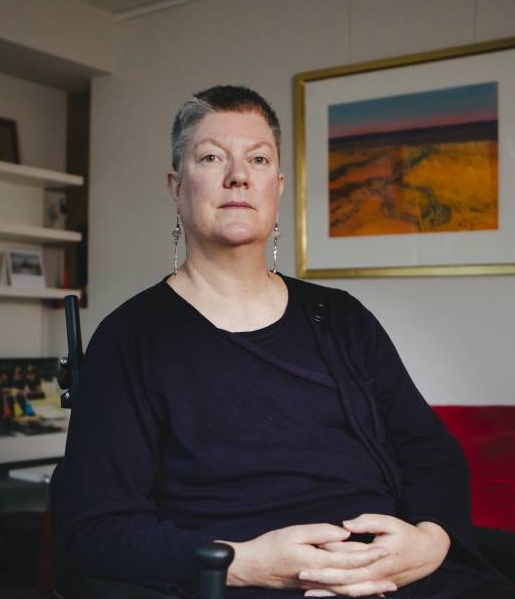
I’ve always celebrated International Women’s Day, its part of my feminism and how I connect with my sisters around the globe. It is a marker in the year for recalling the women* who have gone before and who have shaped me. My mentors, friends, and family – those who remain a part of everything I do.
IWD is also important for me as a disabled woman as a means of bringing feminism into the disability rights movement, and disability into the feminist movement.
My preference on IWD is to move within mainstream women’s spaces, as a way of raising the visibility of disabled women, and as a reminder in those spaces that feminism must be intersectional.
Disabled women are often forgotten in mainstream IWD events. When we are included, it is usually just one of us as a nod to women’s diversity. Given that disabled women are one in five of all women we are still highly marginalised even within the women’s movement.
I love the energy and approach of disabled women and know that our perspectives are at the forefront of demolishing the patriarchy. It is disabled women who are disrupting the rigid ableist structures that patriarchy has built – the structures which demand we live our lives with bodies and minds that behave in certain ways – and it is disabled women who are showing a new way forward that encompasses all.
On this International Women’s Day I’ll be connecting with my disabled sisters globally, in all their intersectional glory and difference, as a way of recharging my energy for the work still to come.
*when I use the term women it always includes all people who identify as women, including feminine identifying and non-binary folk.
(Image Source: Picture by Jamila Toderas. Canberra Times 23/8/19)
Dr Karen Price
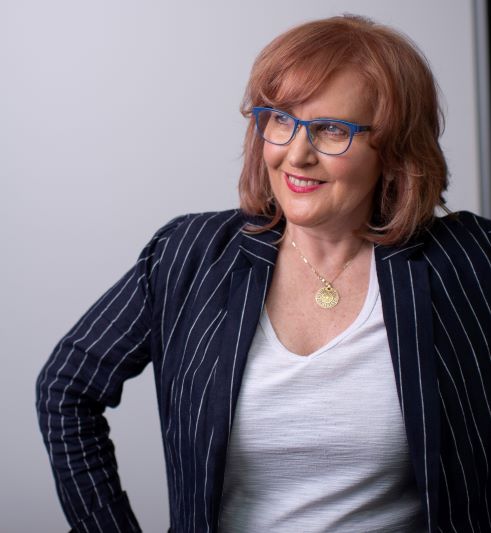
What does IWD mean to me?
The eternal hope that equity lifts us all.
From yesterday, to today and for tomorrow.
IWD celebrates all that women have achieved and shines a light on what is yet left to do. So much of this is contextual. In some countries women still have few rights. There is much sorrow for many on the basis of their gender and it grieves me.
I reflect on yesteryears.
This international women’s day means I can honour my grandmothers. One of whom was a concert pianist. I never heard her play. I never saw a piano in her house though she shared a love of music with me. There were many celebrated high achieving men in her family and she died of a broken heart. My other grandmother loved to work and her assertive style brought her many penalties in life. She didn’t suffer fools but that only made her an object of scorn as an uneducated Irish woman in low paid jobs and newly migrated. Vulnerable, fierce and voice dismissed. Both women gave to the next generations a strong determination to be educated, to not be poor, to not be defeated, to be independent even as they were not.
I vaguely remember my teachers celebrating women’s equal pay rights when I was very young and at school. It is personal recall but I can only recall opposition from male influences back then. I can remember family friends surprise that my favourite subject at school would be Maths. It was only a “domestic incident” was how violence reported on the news or locally was framed back then. I remember the young men marching off to Vietnam. Good soldiers… perhaps.
Today I can only speak from my context.
There are so many contexts, and I am acutely aware of the terrors of the world based on gender. I mean gender in its broadest rainbow sense. In Australia, our recent dialogue has been about the attitudinal issues that lead to the abuse of power on the basis of gender. Sexual assault, rape, insults, grooming, standards of behaviour and dismissal of trauma have been witnessed and recorded nationally.
Power is not given away without a struggle however and neither does power go unchallenged. When you believe in the meritocracy you have shut your eyes to others suffering. Who would want to write their story of power or achievement though, and call it luck? Not many acknowledge their luck.
I am lucky. I was born in Australia. I am white. Despite early obstacles I got an excellent education. I am privileged by it. Privilege is luck. There is a responsibility to lift others, and to shine lights on the darkest places. How power can heal and how it can hurt needs to be deeply considered by society. Recent events in Canberra with Grace Tame and Brittany Higgins have clearly demonstrated that. I am aware there are likely many more brilliant bright lights of our world extinguished by the hardships of discrimination. We lose talent.
International womens day means I can talk about the need for Australia to have a national tax-payer funded childcare system that liberates both men, women and the rainbow of caregivers. Children, teenagers, young adults and their care requires mutual obligation from society. Not one (often woman), giving up his/her financial security so the rest of the society benefits from a strong next generation while the predominantly female carer lives out old age in poverty. That is structural inequality and it needs immediate redress.
We educate women well in Australia compared to other countries, but we don’t support them after that. Our workforce participation of women is lagging behind other OECD countries. A national taxpayer funded childcare system also helps those women who have not yet had the luck to get an education. It frees all women and caregivers to establish financial independence to free themselves from the shackles of not only poverty, but coercive control, financial abuse and all the other forms of intimate partner violence. To the naysayers on the cost of this, please, do your research as the workforce participation leads to increased tax receipts and returns more to GDP than it costs. National tax payer funded childcare means home care can be shared equitably and families can flexibly share in caregiving thus liberating often men from the soldiering on stoic interior so often toxically prescribed. It works for all families and therefore all of society as the structure of the family in all its myriad forms is the basis of our economic future.
International women’s day mean my daughters and my son have a better world. Still my daughters suffer due to their gender, I have heard it within their medical and the research communities still. I hope my son can express fatherliness, empathy and his home relationships without fear of stigma although undoubtedly there will still be a penalty. In the male dominated world of engineering there is already the expectation of the breadwinner effect upon his work patterns. We are fifty years behind Scandinavian countries for a national tax payer funded child care scheme that recognizes the value of all parent’s nurture. Attitudes will not change until the legislation removes this structural barrier. The legislation must come first.
However there is hope for tomorrow.
The pandemic well and truly squashed the sexist invisibility of domestic life and its necessary labour. Children crawled across international zoom screens, dogs interrupted, non-traditional couples were visible, doorbells rang. Paid work constantly interrupted by the unpaid workplace. Flexibility now expected. We need to continue to shout about that unpaid labour upon which the whole world depends. Now we are shouting it into the open. Domestic labour is the hardest of work.
In talking about gender I find it less triggering for some to talk about yin and yang energy. The Eastern philosophical traditions proposes yin and yang work best together. The rise and the fall, the soft and the hard, the order and the chaos. Together in balance is the only way forward. I would say beyond a narrow duality, there is a greatness beyond the sum of parts. When we have one predominant force such as yang (traditionally seen as male) being privileged over another we will all suffer. We see it in the world as it is now. We painfully see children dying on the other side of the world now, as yet another war rages. Ostensibly a war to protect a nationalistic pride for which children die, is a world out of balance.
I know we need a strong defence to maintain peace, but violence has never been reconciled by our community and we need to come to terms with its dark underbelly in us all. Did Darwin really suggest survival of the fittest as the only theory, because I have seen commentary that our ability to collaborate is more responsible for human evolutionary success? We should continue to question our culture in responsible honest ways and remain intellectually curious about our positions.
International women’s day can point to peace and the balanced harmonization of all the energies and the genders. It is urgent and constant work. International women’s day shines a light on inequity and the misuse of power. On war and its ravages on often the poorest of men, on women and on children. We have landed people on the moon, discovered the Higgs boson but have still not yet solved our differences. Emotional labour is an intellectual skill and never is it soft but it shines hard like a diamond. Emotional labour is the hardest of labours.
There is still so much to do. I am lucky to have my voice and I duly note those who would take it from me. The feminist ethics of care needs to be brought into being to balance the structures of power. And don’t expect polite conversation from me if that proposal is suggested to be a political struggle from the right or left of politics. Care is not ideologically of partisan politics. International women’s day and the care ethic is for all people to balance, to grow and to share a peaceful and productive life with respect for all including the nurture of the vulnerable. And we will all be vulnerable someday.
The empathy of care is the power that grows and is generative of life. After all, without care or empathy in early life in particular, none can live, nor achieve nor build a better world.
I honour the past, I recognize the present, and I hope for tomorrow. I love my female energy and I celebrate all its forms in all others. Long may we celebrate International Womens Day.
Eva Cox
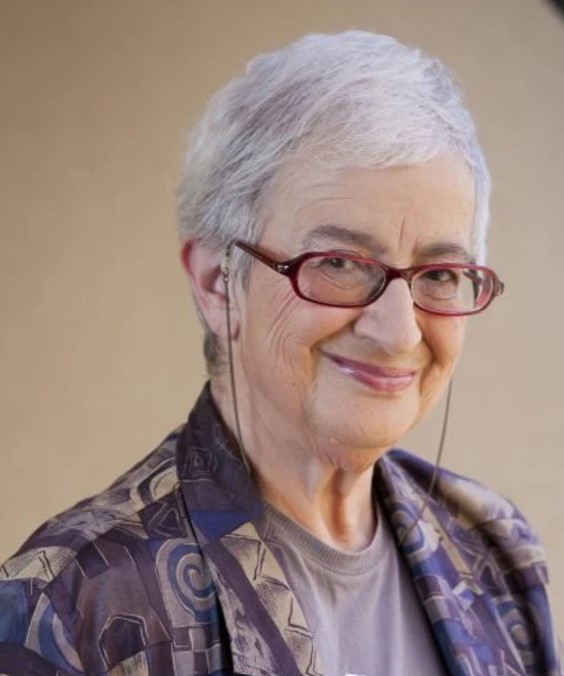
International Women’s Day, the one day of the year we clearly can claim to celebrate our binary gender value as potential baby makers and carers, However, mn seem to collect 364 days of claiming power roles via ejecting sperm. Their limited efforts to complete the next generation still seems to be the determinant of control rights. With IWD nearly upon us, we women are still clearly the second sex. The mix of Covid and flooding here and serious war threats again, make it hard for old veteran activist feminists, including me, to retain long term optimism that we can achieve social fairness reforms and deal with environmental threats.
We have made little progress in recognising the value of our unpaid social contributions and the needs for fairness and ethics are omitted from market economics, which contribute massively to the most blokey versions of politics. We also have an election very soon but the high levels of political ineptitude and obsession with economic growth bodes ill.
Are there alternatives? As I write this, my TV is broadcasting this year’s Mardi Gras! It is joyful and noisy and a record of success proponent of Queer political interests. The long marching groups show both attitude gains and major shifts in gender re-defining, Next year they promise it will be bigger! Optimism and laughter were a big part of the commentary. We need to learn from them!
Where are the feminist activists IWD events and celebrations this year? No local posters, emails to tell all the meeting points, Is the gender equity push still active and effective? Or does it continue to be obvious that our access to more equally shared power is still seriously limited by male defined equality settings that are still stuck on masculine criteria? When we marched in the seventies with a growing women’s movement offering not only protests but solutions to the problems, so we made many changes, However, now we often protest but with little effect, just the risk of frustrated protesters
Women succeed in paid work when we do feminised jobs, often at lower pay and status, and behave in ways that don’t make male balls twitch, Some are harassed and assaulted to keep them under control as macho dominance is not being addressed. Feminised skills are undervalued, look at the mess of aged care
I want to see some tough feminists working on real solutions that come with our care roles, The serious lack of social fairness and wellbeing from the male majorities in power needs a major feminised shift of political power and issues to save societies , the environment and our futures
I am not talking about the past efforts as we need to create hope not nostalgia…and radical power changes! Let me know if you agree and want to act.
Dr Diann Rodgers-Healey

What does International Women’s Day (IWD) mean to me?
For the past twenty-one years as Director of ACLW, IWD has personally been a day for celebrating the achievements of women and girls while drawing attention to the overt and covert challenges they face in many aspects of their lives, personal and professional, as well as that which is systemically engineered through policy making by workplaces and governments.
This year as I celebrate the impact of powerful voices of Australian women in the national discourse led by Grace Tame, Brittany Higgins, Chanel Contos, Saxon Mullins and many others demanding attitudinal change and justice for women and victims of sexual assault, listening to their lived experience and knowing of the systems and people in those systems who failed them is devastating. Reading the comments from victims included in Commissioner Jenkins Report into parliamentary workplace culture that reveals a toxic picture of sexual harassment and bullying, is sickening.
To see the incongruity between the power and clarity of the voices of sexual assault victims and survivors and the resulting Draft National Plan to End Violence Against Women and Children 2022-2032 is extremely disheartening.
As I mark International Women’s Day this year, I bear witness to the sheer illogical and insane abuse of power by a male leader and his government over a sovereign nation. It is tragic to see what innocent Ukrainian women and children, and their families are facing in the ongoing illegal invasion of their country by Russia’s President Vladimir Putin. It starkly demonstrates the lineage of incremental enablers, and systems from which such an abuse emanates and the extent to which global efforts are made to incrementally address this threat, all of which are falling short of stopping the death and terrorising of innocent Ukrainian children, women and their families. Refugees fleeing Ukraine now represent the biggest displacement of people in Europe Since World War II.
One would think that in a world of unprecedented knowledge and capacity, we have an immense potential for coexistence globally. Yet what we bear witness to in this war is that the power of toxic masculinity in its willpower to dominate and subjugate others, especially those who are vulnerable, manipulates truth, reason, compassion and humanity to simply care for another.
Shades of such abandonment of basic humanity, dignity and decency also lies in the spheres of policies, governance, decisions and actions which year after year continues to require that on 8 March we remind those in power that globally women of all intersections including those who identify as women continue to experience gender inequality and that this needs to stop.
We rose to this challenge again in 2020, when revelations of women being abused in the Australian Parliament grew. That there were calls for the blanket of secrecy and fear to be lifted, so that women could speak without fear of repercussions, so that the workplace culture in Parliament could be reshaped by Commissioner Jenkins to one that upholds attitudes and behaviour respecting women, and the incongruity of this happening in the place where legislation pertaining to gender is instituted and advocated for, beggars belief.
To say that bias underlying such conduct against women is unconscious, is to say that those who are responsible fall short of the capacity to think, reflect, learn and change their thinking and behaviour. Surely these capacities are essential in political leadership.
To consciously discriminate against women is ultimately to make a choice to do so. To unconsciously discriminate against women is to make a choice to remain blinded to the ramifications of one’s actions causing harm to women.
In 2022, we have attained an unprecedented level of gender awareness and the ramifications of gender inequality, thanks to the emergent and cumulative impact of women and those who advocate for women globally. Leaders sidelining addressing gender inequality are therefore making a choice to contribute to the perpetuation of gender inequality and its devastating impacts on women and families and on the nation’s social and economic development.
As gender inequality prevails in Australia in its most brutal form of violence and abuse against women and girls, and those who identify as women, how does a nation imbue and enact egalitarianism and respect in every minutiae and overarching frame of governance, such that this violence is so foreign to the nation’s norms that it is urgently, profoundly and prolifically addressed and dismantled, disavowed and punished.
If a nation’s parliament does not set this tone in words and actions, in legislation and advocacy in acting, monitoring and holding people to account, to shape the national psyche, this toxic imbalance of power in words and deeds ultimately continues to have air to breathe, and destroy lives. Integrity and purposeful leadership to achieve an egalitarian Australia where sexism does not prevail, requires an uncompromising commitment to choose to act.
Australia continues to lag in gender equality in the areas of economic security, violence against women and representation of women in leadership.
As the Australian Workplace Gender Equality Agency latest data based on more than four million employees across Australia between April 1, 2020, and March 31, 2021 shows, women on average, earned almost $26,000 less than men. We continue to hear every year that the continuing gender pay gap shows the slow progress by organisations to fix it. In 2021, however, what the government needed to do to fix this became loud and clear.
It is great to see that the Morrison government has just as of last week decided to put in place steps to substantively address workplace gender inequality. Following the Australian Government’s announcement in the Women’s Budget Statement 2021-22, a targeted review of the Workplace Gender Equality Act 2012 commenced. This Act is the legislation that governs the work of the Workplace Gender Equality Agency (WGEA), an agency that is essential to the achievement of gender equality in Australian workplaces. On 20 October 2021, the Minister for Women announced the start of public consultation on the Workplace Gender Equality Act 2012. This attracted over 155 written submissions and numerous experts for roundtable discussions as part of the government’s consultation approach.
The 10 recommendations from this Review were announced on 4 March 22 which on the whole will make workplaces transparent and accountable in terms of the gender pay gap and the action they are taking to accelerate gender equality. One of the highlights of this Review is that the Workplace Gender Equality Agency (WGEA) has been given powers to publish organisation gender pay gaps and to set targets and report against them. WGEA will now ‘bridge the action gap with new gender equality standards that set targets by requiring large employers (500 or more employees) to commit to, achieve, and report to WGEA on measurable genuine targets to improve gender equality in their workplaces.
As it stood the Workplace Gender Equality Act 2012 did not allow pay transparency by the Workplace Gender Equality Agency. The Act did not allow WGEA to publish gender pay gaps of individual employers. As such, since 2012 the Act has reinforced the systemic undervaluation of women’s work, not allowing the public transparency of gender remuneration data, which would have enabled employees and stakeholders to affect change.
It is excellent that this Review will accelerate progress on gender equality in workplaces, and supports the implementation of the Respect@Work Report to prevent and address workplace sex-based harassment and discrimination, in particular recommendation 46 (develop good practice indicators to measure and monitor sexual harassment issues) and recommendation 42 (consider how the indicators apply to WGEA reporting).
As Commissioner Jenkins points out, “This Review focuses on data about the most important gender indicators, including introducing transparency of organisational gender pay gaps, clarifying that ‘sex based harassment and discrimination’ is a Gender Equality Indicator, collecting age and location data, and exploring opportunities to safely collect broader diversity data…It also modernises the concepts of minimum standards to meet contemporary expectations for gender equality standards. These are important improvements.”
It is a credit to all who contributed to this Review. ACLW on its own and as a Member of the Equality Rights Alliance was one of the 155 written submissions. The Equality Rights Alliance is Australia’s largest network advocating for women’s equality, women’s leadership and recognition of women’s diversity, bringing together 65 organisations with an interest in advancing women’s equality.
It is a credit to WGEA which reviewed its direction, achievements and the progress of gender equality in Australia based on its own datasets and findings, and articulated what it could and needs to do to drive change in gender equality in organisations in Australia. The WGEA Review Team in the Department of Prime Minister and Cabinet heeded most of our calls for substantive change and our support for WGEA.
Though this ‘win’ for women is a reflection on our individual and collective capacities to sharpen our critical lenses and lead with more deliberation and collaboration, it is also a reflection on the intensity of effort and time it has taken to pursue reforms, as legislators and business leaders are slow in stepping up to review and change what is engineering systemic barriers that favour gender bias.
So in relation to the 2022 IWD theme, ‘Break the Bias,’ I recognise that cultural and behavioural change by every person will eliminate bias against women. Beyond this, however, I believe that what is critical is strong and consistent political leadership to instigate structural changes to systematically address gender inequality and shift the power imbalance to stop advantaging male power and toxic masculinity. This is doable as the recent intended reform in workplace gender equality shows.
A whole-of-government approach is needed to deliver gender equality. Gender responsive budgeting is crucial to this so that the entire budget process and everything the government does is analysed in terms of the gender impacts of its budgets and policies. Gender equality should be an explicit outcome that policies and budgets seek to achieve. This is doable.
To all those who are striving to ensure globally that gender equality as a fundamental human right is achieved, I am honoured to walk alongside you and continue the commitment that our calling demands.
Thank you.